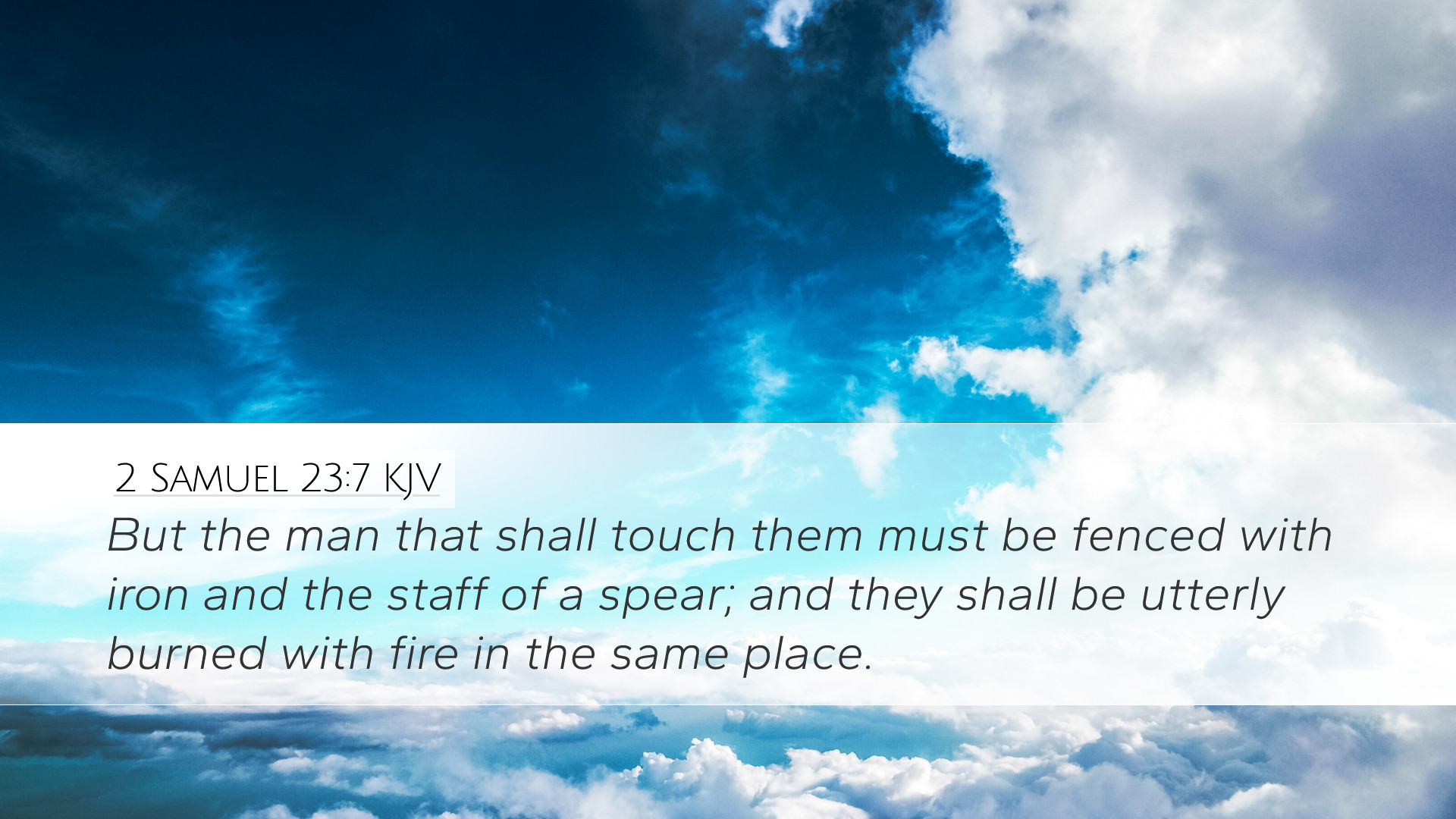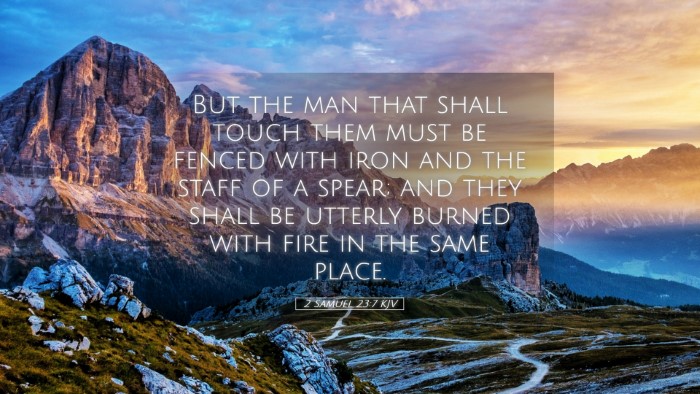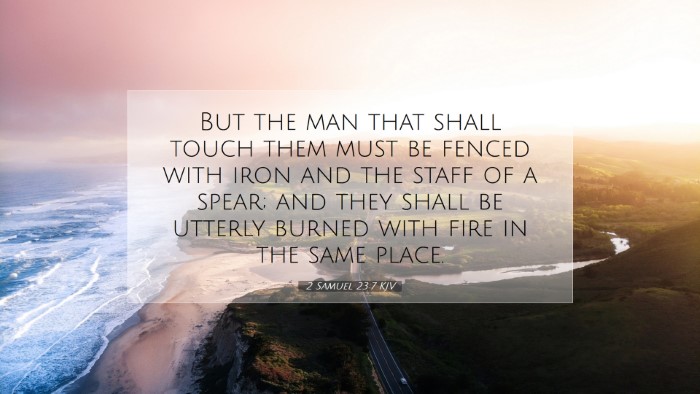Commentary on 2 Samuel 23:7
Bible Verse: "But the man that shall touch them must be fenced with iron and the staff of a spear; and they shall be utterly burnt with fire in the same place." (2 Samuel 23:7)
Introduction
This verse is part of the “Song of David,” where David reflects on the valiant deeds of his mighty men and the legacy that they leave behind. The imagery used invokes themes of strength, protection, and the dire consequences of transgression against the faithful and the righteous. The analysis of this passage draws from various public domain commentaries providing a rich, multi-faceted approach to its interpretation.
Matthew Henry's Commentary
Matthew Henry emphasizes the value of loyalty and the fierce nature of divine judgment. He notes that the phrase "fenced with iron" symbolizes strong defense and the impregnable nature of God's people. Henry interprets “the man that shall touch them” as a warning against those who would dare to harm or challenge God's chosen ones. He reflects upon the necessity for believers to uphold purity and righteousness, marking them as untouchable and revered before God, thus ensuring safety against destruction.
Furthermore, Henry brings attention to the destructive imagery of fire as a metaphor for divine judgment. The element of fire represents both purification and condemnation—warming for the righteous but consuming for the wicked. This sets a premise of hope for the faithful while serving as an ominous warning to adversaries.
Albert Barnes' Notes
Albert Barnes offers insightful exposition on the literal interpretation of weapons and defense used in warfare. He articulates that the mention of "iron" and "spear" speaks to the substantial measures of protection that are required against threats. Barnes explains that in defense of God’s anointed, it requires more than simple human strength; it denotes a divine empowerment to challenge spiritual and physical adversaries.
He further contextualizes the verse within the overarching narrative of David's reign, highlighting the significance of this proclamation amid his mighty men. The fierce tone serves to emphasize the commitment to their cause and the lengths to which they must go in preservation of fidelity to God’s covenant.
Adam Clarke's Commentary
Adam Clarke delves deeply into the metaphorical implications of the “fenced with iron.” He correlates the defensive posture of the faithful with the resilience learned from divine teachings and the necessity of preparation against adversaries. Clarke indicates that the verse speaks not just to physical battles but to spiritual warfare, suggesting that the faithful must arm themselves with righteousness and uprightness.
Moreover, Clarke underscores the phrase "utterly burnt with fire,” interpreting it as a symbol of total destruction reserved for those who act against God’s people. This creates a vivid imagery that reinforces divine justice, reminding both the faithful and the rebellious of the expectations set forth by God for obedience and respect towards His chosen.
Thematic Insights
This verse encapsulates several key themes relevant for pastors, students, and theologians:
- Divine Protection: The imagery of being fenced with iron illustrates the stronghold of God’s protection over His people. Understanding how God surrounds His followers, particularly in times of peril, fortifies faith.
- Consequences of Actions: The fire represents the fiery judgment awaiting those who act recklessly or violently against God’s covenant. This serves as both a motivational and cautionary tale for believers to adhere to their commitments.
- Spiritual Warfare: Interpreting this scripture in the context of spiritual conflict adds depth to its applicability today. Emphasizing the metaphor of arms suggests the necessity of equipping oneself with spiritual tools to combat adversities against one's faith.
- Legacy of Faithfulness: David reflects on the mighty men as examples of faith and dedication, reminding modern readers of the importance of cultivating their own legacy of service and righteousness.
Conclusion
2 Samuel 23:7 is a powerful verse that commands attention, stretching beyond its historical context into timeless truths about faith, protection, and divine justice. Through a comprehensive review of prominent commentaries, it is evident that this verse beckons readers to reflect on their spiritual posture in the face of challenges, reinforces the inevitable justice of God, and encourages steadfastness in upholding righteousness. For students, theologians, and pastors alike, this passage serves as a cornerstone for discussing themes of loyalty and divine guardianship within the narrative of Scripture.


